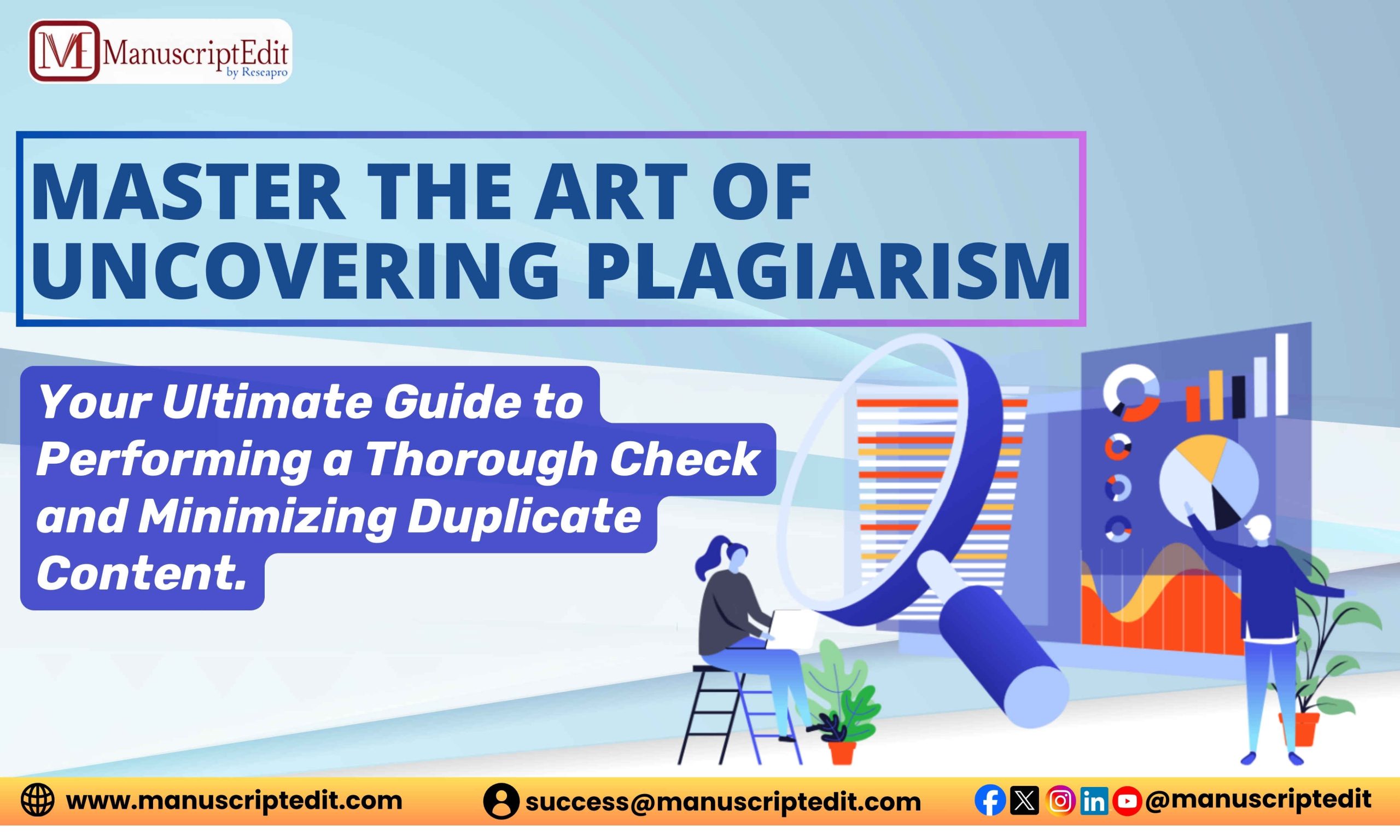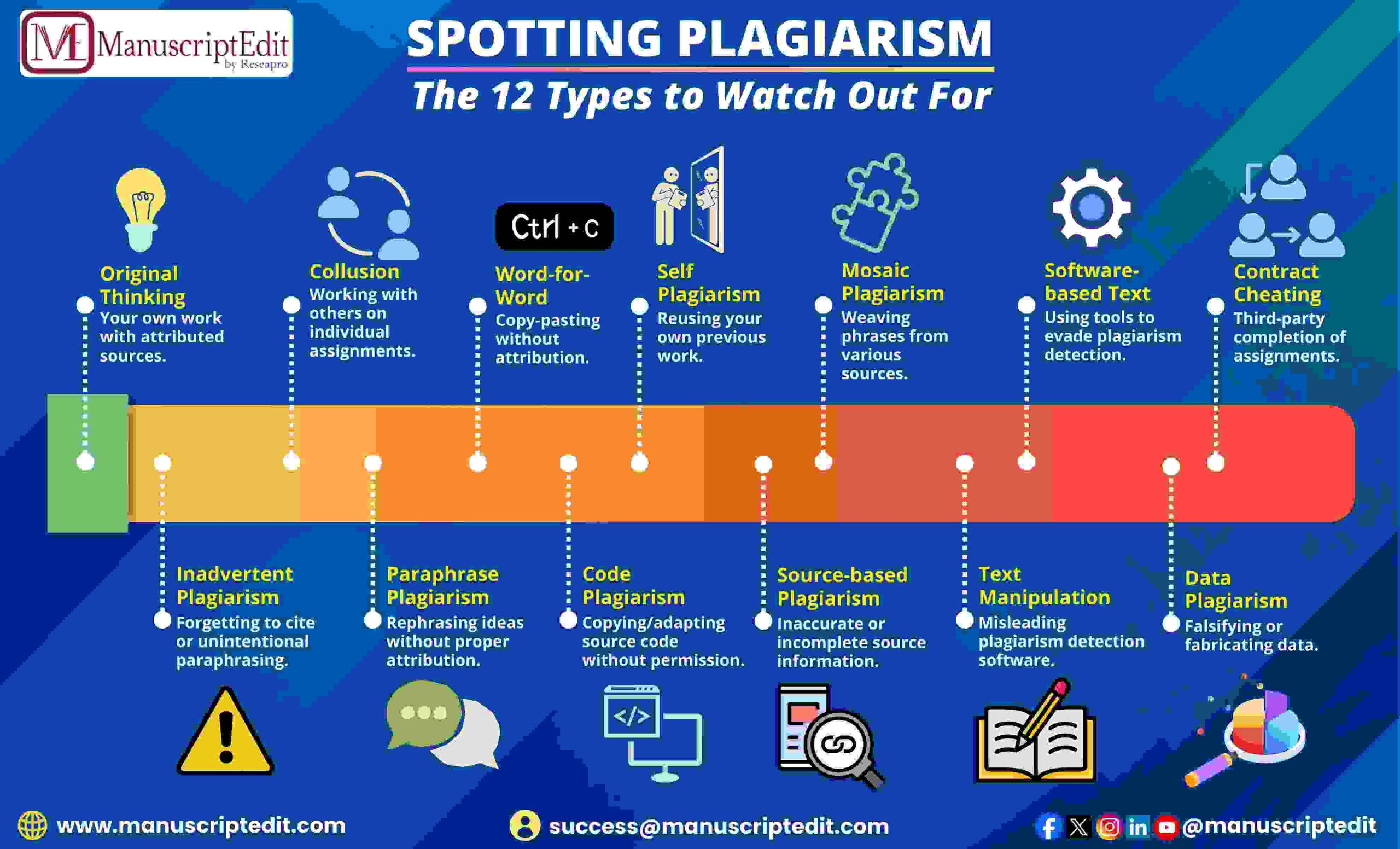|
Getting your Trinity Audio player ready...
|
 Plagiarism the uncredited use of someone else’s work or ideas, is a serious academic and professional offense that can have far-reaching consequences. Whether you’re a student, researcher, or content creator, mastering the techniques to detect and prevent plagiarism is crucial. This guide will equip you with essential tools and strategies to conduct thorough plagiarism checks and ensure your work is original and ethically sound.
Plagiarism the uncredited use of someone else’s work or ideas, is a serious academic and professional offense that can have far-reaching consequences. Whether you’re a student, researcher, or content creator, mastering the techniques to detect and prevent plagiarism is crucial. This guide will equip you with essential tools and strategies to conduct thorough plagiarism checks and ensure your work is original and ethically sound.
Understanding Plagiarism
Plagiarism can take various forms, including:
- Direct copying: Using someone else’s exact words without proper attribution.
- Paraphrasing without citation: Rewriting someone else’s ideas or content in your own words without acknowledging the source.
- Self-plagiarism: Reusing your own previously published work without proper citation or permission.
- Improper citations: Incorrectly citing sources or failing to cite them altogether.
Tools for Detecting Plagiarism:
- Plagiarism Detection Software: Utilize advanced tools such as Turnitin, Copyscape, or Grammarly to scan your document against a vast database of published works and online content.
- Google Search: Conduct targeted searches using unique phrases or suspicious passages from your work to identify potential sources of plagiarism.
- Manual Comparison: Compare suspected passages side-by-side with the original source to identify similarities and discrepancies.
Strategies to Minimize Duplicate Content:
- Cite Sources Properly: Always provide accurate citations for any information or ideas borrowed from other sources, following the citation style recommended by your institution or publication.
- Use Quotations and Paraphrasing: When using another author’s words, enclose them in quotation marks and provide a citation. For paraphrased content, ensure it is substantially reworded and properly attributed.
- Create Original Content: Prioritize generating unique insights and perspectives in your work to minimize the need for extensive external references.
The uncredited use of someone else’s work or ideas, is a serious academic and professional offense that can have far-reaching consequences. Whether you’re a student, researcher, or content creator, mastering the techniques to detect and prevent plagiarism is crucial. This guide will equip you with essential tools and strategies to conduct thorough plagiarism checks and ensure your work is original and ethically sound.
Understanding Plagiarism
Plagiarism can take various forms, including:
- Direct copying: Using someone else’s exact words without proper attribution.
- Paraphrasing without citation: Rewriting someone else’s ideas or content in your own words without acknowledging the source.
- Self-plagiarism: Reusing your own previously published work without proper citation or permission.
- Improper citations: Incorrectly citing sources or failing to cite them altogether.
Tools for Detecting Plagiarism:
- Plagiarism Detection Software: Utilize advanced tools such as Turnitin, Copyscape, or Grammarly to scan your document against a vast database of published works and online content.
- Google Search: Conduct targeted searches using unique phrases or suspicious passages from your work to identify potential sources of plagiarism.
- Manual Comparison: Compare suspected passages side-by-side with the original source to identify similarities and discrepancies.
Strategies to Minimize Duplicate Content:
- Cite Sources Properly: Always provide accurate citations for any information or ideas borrowed from other sources, following the citation style recommended by your institution or publication.
- Use Quotations and Paraphrasing: When using another author’s words, enclose them in quotation marks and provide a citation. For paraphrased content, ensure it is substantially reworded and properly attributed.
- Create Original Content: Prioritize generating unique insights and perspectives in your work to minimize the need for extensive external references.
Manuscriptedit’s Plagiarism Check service is designed to support authors and researchers in maintaining the highest standards of academic integrity and originality. By leveraging advanced tools and expert knowledge, we ensure that your work is free from plagiarism, contributing to your academic success and professional reputation.
Ensure the authenticity and integrity of your written content with Manuscriptedit’s Plagiarism Check service. Contact us today to learn more about how we can assist you in achieving plagiarism-free documents that meet the rigorous standards of academic and professional publishing.
Source:
- 6 Consequences of Plagiarism, iThenticate. https://www.ithenticate.com/resources/6-consequences-of-plagiarism
- Plagiarism and unethical practices in literature. Indian Journal of Ophthalmology. 2009.
- UNDERGRADUATE STUDENTS’UNDERSTANDING ON PLAGIARISM IN ACADEMIC WRITING.” Proceedings of EEIC 1. 2016.




